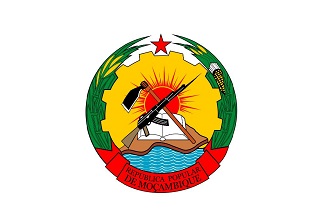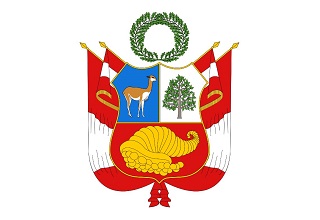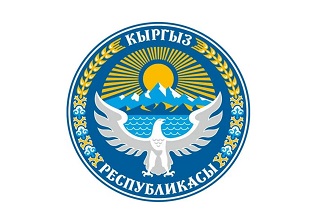Regarding the Inspection and Quarantine Requirements for the Dried Chilies from Egypt to China
1. Basis for inspection and quarantine
(1) Biosafety Law of the People's Republic of China;
(2) The Entry-Exit Animal and Plant Quarantine Law of the People's Republic of China and its implementing Regulations;
(3) The Food Safety Law of the People's Republic of China and its implementing regulations;
(4) Memorandum of Understanding between the General Administration of Customs of the People's Republic of China and the Ministry of Agriculture and Land Reclamation of the Arab Republic of Egypt on Phytosanitary Requirements for the export of Egyptian Dried chili peppers to China.
2. Name of goods allowed to enter
Dried chilies in this announcement refer to products made from edible chilies (Capsicum annuum L.) grown in Egypt and processed by natural drying or other drying processes.
3. Enterprise registration
The planting base and processing and packaging plant of dried chili exported to China shall be reviewed and filed with the Central Plant Quarantine Bureau on behalf of the Egyptian Ministry of Agriculture and Land Reclamation, and approved for registration by the Chinese Customs. Registration information shall include name, address, product and registration number, so as to accurately trace the source of dried peppers imported to China when they do not comply with the relevant provisions of this announcement. Before starting trade, Egypt should provide the Chinese Customs with the registration list. After approval by the Chinese Customs, it will be published on the Chinese Customs website.
4. List of quarantine pests of concern to the Chinese Customs
(1) Tobacco ringspot virus(TRSV)
(2) Tomato spotted wilt virus(TSWV)
(3) Potato spindle tuber viroid(PSTVd)
(4) Dickeya chrysanthemi
(5) Orobanche aegyptiaca
(6) Orobanche cernua
(7) Orobanche ramosa
5. Pre-export management
5.1 Planting base management.
(1) The planting base of dried pepper exported to China shall establish and improve the quality management system and traceability management system under the supervision of Egypt, implement good agricultural practices (GAP), maintain planting hygiene conditions, such as no pollution sources affecting the production of dried pepper, timely cleaning of plant disease residues, and implement integrated pest management (IPM). These include pest monitoring and investigation, physical, chemical or biological control, and other control measures such as agricultural operations.
(2) The planting base exported to China shall, under the supervision of Egypt, carry out pest monitoring and comprehensive management for the quarantine pests concerned by the Chinese Customs. The monitoring and control of harmful organisms in planting bases exported to China should be carried out under the guidance of professional and technical personnel. Technicians shall receive training from Egypt or its authorized authorities. The planting base exported to China shall keep pest monitoring and control records for at least 2 years and provide them to the Chinese Customs upon request. Pest monitoring and control records should include at least the monitoring time, the name of the pest found, the control measures taken and the date of use, active composition and concentration of the chemical used.
(3) For tobacco ring spot virus, tomato spot wilting virus, potato spindle tuber virus, and Dicardia chrysanthemi, the planting base should be monitored every 2 weeks from growth to harvest to ensure that these 4 pests do not occur. If these 4 harmful organisms are found, the growing base of this growing season pepper shall not be used as raw materials for the production of dried pepper exported to China.
5.2 Processing and packaging enterprise management.
(1) The registered processing and packaging plant of dried chili exported to China shall establish a traceability system to ensure that dried chili exported to China can be traced back to the registered planting base, and record the processing and packaging date, the name of the source planting base or its registration number, quantity, export date, export quantity, import country, transport vehicle or container number.
(2) The processing, packaging, storage and shipment of dried chilli exported to China shall be carried out under the quarantine supervision of Egypt or its authorized personnel.
(3) The processing and packaging plant of dried pepper exported to China should be clean and sanitary, the ground should be hardened, and there should be a raw material field and a finished product warehouse.
(4) The storage, processing, packaging, storage and other functional areas of dried chili should be relatively independent, reasonably distributed, and isolated from the living area and maintain an appropriate distance.
(5) In the process of processing, dried chili peppers should be manually picked, screened, cleaned and other processes to ensure that there are no insects, plant residues, soil and other foreign impurities.
5.3 Packaging Requirements.
(1) The packaging materials should be clean, sanitary and unused, and meet the relevant plant quarantine requirements of China. If wood packaging is used, it must comply with the requirements of International Standard for Phytosanitary Measures 15 (ISPM 15).
(2) Each packing box should be marked in Chinese or English product name, country, origin, planting base and processing and packaging factory name or its registration number and other traceability information. Each packing box and pallet shall be marked with "输往中华人民共和国" or "Exported to the People's Republic of China" in Chinese or English.
(3) The transport vehicle or container loaded with dried Chinese pepper must be inspected at the time of shipment whether it has good sanitary conditions. The means of transport or container shall be sealed, and the seal shall be intact upon arrival at the port of entry in China.
5.4 Pre-export inspection and quarantine.
(1) Before export, Egypt shall carry out inspection and quarantine of dried peppers exported to China. Dried chili peppers that have passed the Egyptian inspection and quarantine and confirmed to meet the requirements of this announcement are allowed to be exported to China.
(2) Within the first two years of the start of trade, Egypt shall conduct a sample inspection of each batch of dried chili exported to China at a rate of 2%. If no phytosanitary problems occur within 2 years, the sampling proportion is reduced to 1%.
(3) If quarantine pests, plant residues or soil of concern to the Chinese Customs are found, the whole shipment shall not be exported to China. Egypt should identify the causes and take measures to improve them. At the same time, records of seizures are kept and provided to the Chinese Customs upon request.
5.5 Phytosanitary certificate requirements.
(1) For dried peppers that have passed quarantine, Egypt shall issue a phytosanitary certificate, indicating the name or registration number of the planting base and processing and packaging plant, and fill in the following additional declaration:“This consignment complies with the requirements specified in the Memorandum of Phytosanitary Requirements for Export of Dried Chilies from Egypt to China, and is free from quarantine pests of concern to China.”
(2) Prior to the commencement of trade, Egypt shall provide samples of phytosanitary certificates to the Chinese Customs for confirmation and filing.
6. Entry inspection and quarantine and unqualified treatment
When imported dried peppers arrive at the entry port of China, the Chinese Customs will conduct inspection and quarantine in accordance with the following requirements.
6.1 Verification of relevant certificates and identifiers.
(1) Check whether the phytosanitary certificate conforms to the provisions of Article 5 (5) of this announcement.
(2) Check whether the marks on the packing boxes and pallets comply with the provisions of Article 5 (3) of this announcement.
6.2 Cargo inspection.
In accordance with relevant laws, administrative regulations, rules and other provisions. The imported dried pepper shall be subject to inspection and quarantine, and those that pass the inspection and quarantine shall be allowed to enter the country.
6.3 Handling Unqualified Cases.
(1) If it is found that it comes from an unregistered planting base, processing and packaging factory, the batch of dried chili is not allowed to enter the country.
(2) If the goods are found not to be accompanied by a valid phytosanitary certificate, they shall be returned or destroyed.
(3) If quarantine pests or other living quarantine pests of concern to the Chinese Customs are found, or plant residues, soil, etc., the goods shall be returned, destroyed or quarantinable.
(4) If it is found that it does not meet the national food safety standards of China, the goods shall be returned or destroyed.
(5) If the above non-compliance is found, the Chinese Customs will immediately inform Egypt and suspend the import of dried peppers from the relevant planting bases and processing and packaging plants as appropriate. Egypt should identify the causes of non-compliance and take improvement measures to prevent the recurrence of similar situations. Chinese customs will decide whether to lift the suspension measures based on the results of Egypt's rectification.
GACC
June 3, 2024




